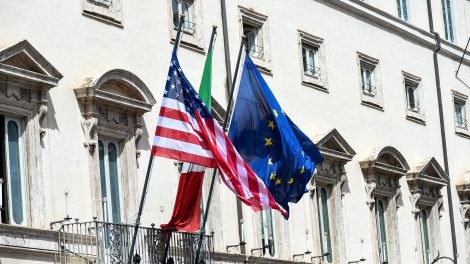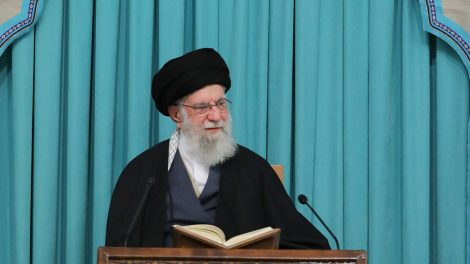As U.S. Defence Secretary Pete Hegseth met Chinese Defence Minister Dong Jun, the meeting marked the first direct military contact since Donald Trump’s second term began. While the defence chiefs discussed regional stability at the ASEAN Summit, Trump and Xi Jinping met in Busan, announcing a brief pause in tensions and limited economic deals on trade, rare earths, and fentanyl.
The intrigue: “Taiwan was never mentioned,” Trump said after the meeting with Xi, while Hegseth “emphasised U.S. concerns” about Chinese activity around the island. From party politics in Beijing to strategic perspectives on Taiwan (even in D.C.), entrenched interests on both sides keep the competition alive.
Why he matters: Joseph Torigian is an Associate Professor at the School of International Service at American University in Washington, D.C., and a leading scholar of Chinese Communist Party history. His latest book, “The Party’s Interests Come First: The Life of Xi Zhongxun, Father of Xi Jinping” (Stanford University Press, 2025), explores the political legacy of Xi’s father — a key to understanding how personal history and party logic intersect in China’s governance today.
Q: Your research on Xi Jinping highlights his complex relationship with Taiwan. How much of that legacy do you think still resonates in Xi Jinping’s own approach to Taiwan today? And what about Taiwan in this Trump–Xi momentum?
A: Within the Party, you had different kinds of experts. Xi Zhongxun was one of the leading figures — if not the leading figure — in the so-called United Front, which ran the Party’s influence operations against non-CCP groups, most famously the Nationalists during the Civil War.
- That means Taiwan is unfinished business, not just for the nation but for the Xi family. Yet Xi would have also seen through his father that practical politics is not just about force — it’s about finding people to work with you.
- And as the son of a revolutionary, the last thing Xi Jinping wants to do is fight a war that risks the Party’s survival.
Q: The recent Fourth Plenum confirmed once again the extreme centralization of authority around Xi Jinping. From your historical perspective — and in light of your work on “The Party’s Interests Come First” — how would you assess this phase of personal consolidation? Do you see it as a continuation of long-standing patterns in the Party’s political culture, or as something qualitatively new in China’s governance?
A: People often describe Xi Jinping’s model of rule as a break in the tradition of Deng Xiaoping, who allegedly built a collective leadership and introduced institutional guardrails.
- However, my book on Xi Zhongxun reveals that even during the Deng era, the Chinese Communist Party was an extraordinarily leader-friendly system.
- Deng removed not only Mao Zedong’s successor, Hua Guofeng, but also two potential successors Deng himself had promoted.
- It has always been very challenging for members of the Politburo and Central Committee to maintain the trust of the top leader, even when they are incredibly cautious.
The bottom line: As Trump touts his “constructive” meeting with Xi — downplaying the Taiwan and other sensible issues — Hegseth’s more direct language reflects a presence of strategic realism in Washington.
- For Xi, the question of Taiwan is deeply personal, embedded in the Party’s unfinished historical narrative and his family’s revolutionary legacy.
- As Joseph Torigian notes, understanding this continuity between past and present is crucial: the struggle over Taiwan is not only a geopolitical contest, but also a test of the Chinese Communist Party’s enduring belief that, in the end, the Party’s interests come first — a lesson to learn for any country that has to deal with Xi (Italy too, of course).
The conversation with Prof. Torigian took place on the sidelines of the “Turning Tides” conference, co-organised by Johns Hopkins University’s SAIS Europe and the University of Bologna. Our sister website Formiche was a media partner of the event.





